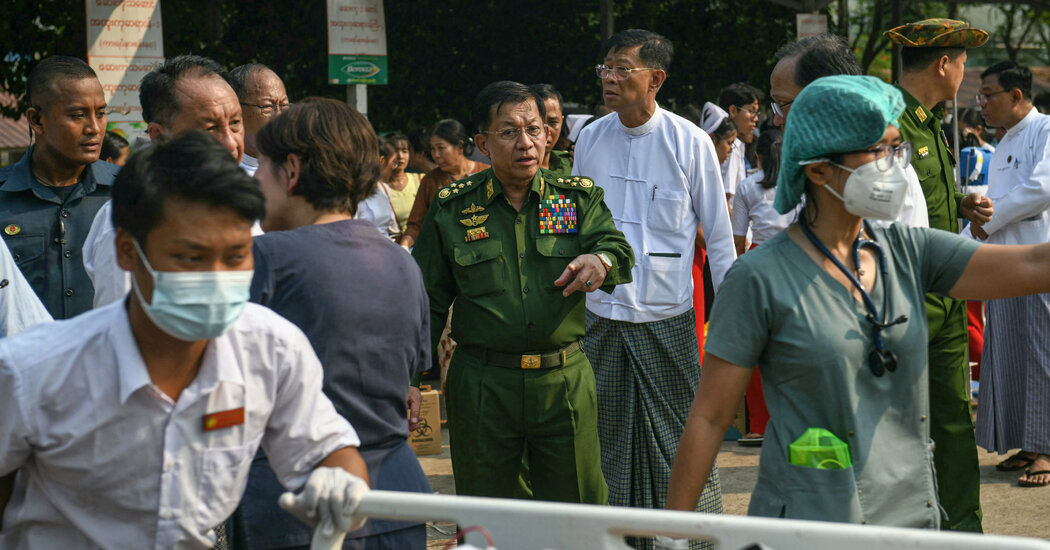The Aftermath of the Devastating Earthquake in Myanmar
The dust from the catastrophic earthquake that struck Myanmar on Friday was still swirling when an unsettling question emerged: Could this violent clash of tectonic plates, which inflicted yet another layer of trauma on a nation already embroiled in civil conflict, signal the potential downfall of Myanmar’s military junta? The earthquake, which has been reported to have claimed at least 1,000 lives, and likely many more, struck just one day after Myanmar’s military regime marked the nation’s 80th Armed Forces Day with a grand parade in Naypyidaw, the capital meticulously constructed by a previous cadre of generals.
The timing of these events could hardly be overlooked. Omens and rumors have long held significance in an authoritarian regime where the free flow of information is stifled. Since seizing power four years ago, the ruling generals have isolated the country and returned to a reliance on superstition and state propaganda. Earthquakes, in particular, are often featured in the astrological almanacs that are widely consulted in Myanmar. A prevalent belief suggests that an earthquake occurring in March heralds the destruction of cities, while one in July foretells the downfall of kings and rulers.
The junta’s control is primarily concentrated in urban areas, notably Mandalay, the country’s second-largest city and one of the regions hardest hit by the recent earthquake. Daw Marlar Myint, an 89-year-old retired school principal, reflected on the calamity, stating it was the most severe natural disaster she had ever encountered. Not one to wait for July to voice her predictions, she expressed her thoughts on the implications of the disaster.
- “We have a saying that a massive earthquake like this is nature’s way of punishing a cruel and corrupt ruler,” she remarked, her voice resonating with conviction.
- “After claiming so many lives, Min Aung Hlaing is now facing the judgment of nature.”
As Myanmar grapples with the dual challenges of natural disaster and political strife, the question of the junta’s future looms larger than ever.




